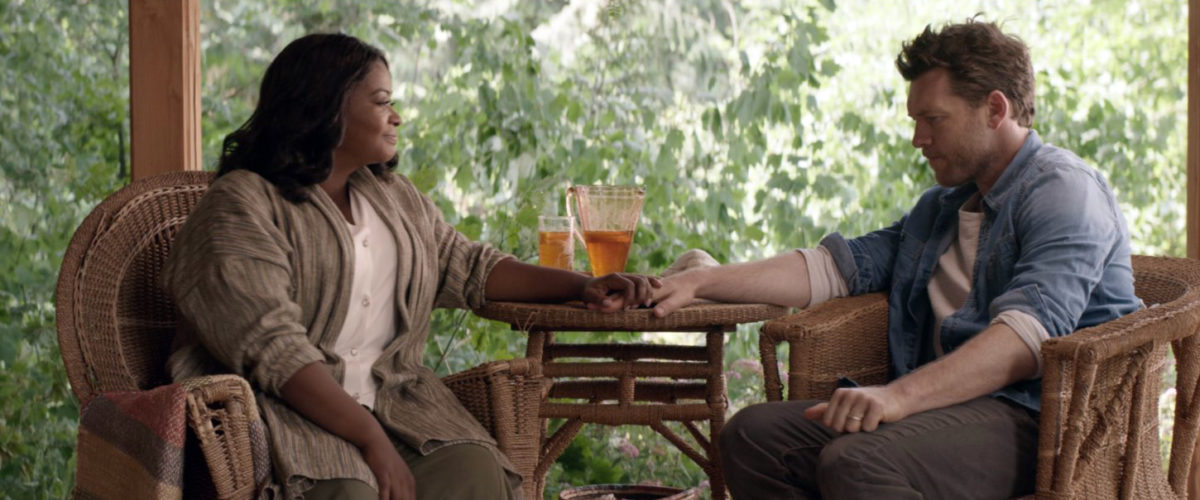The movie reviewer side of Michael Parnell is so-so on the film The Shack as a cinematic production.
“It’s OK — I’ll just say that,” said Parnell, who writes film reviews for EthicsDaily.com.
The pastor side of Parnell is more passionate about the film adaptation of the bestselling 2007 book by William Paul Young.
“I think it’s a good thing for what it’s supposed to be about: giving people a stage to talk about where is God when terrible things happen,” said Parnell, pastor at Temple Baptist Church in Raleigh, N.C.
Of course the film, like the book before it, has turned out to be much more complicated than all of that.
The Shack is about a father (Mack Phillips) lost in grief for his youngest daughter, who was abducted and murdered. Later, he receives a written invitation from God to spend a few days at a secluded shack — the shack — where evidence of the crime had been discovered. With God’s help, the father is able to work through to healing and forgiveness.
But as sales rose, critics descended. Some conservative Christians were critical that God, in both the novel and film, was portrayed by a black woman.
“That’s a huge, huge thing for a lot of people,” Parnell said. “That becomes a big sticking point.”
For some, The Shack is theologically offensive — even heretical — in how it portrays the Trinity. An Asian woman as the Holy Spirit and a Middle Eastern man as Jesus join God, a black woman who goes by Papa.
But Parnell said the concept can be constructive.
“In the movie you see the relational aspect of how father, son and spirit interact with each other,” he said.
“The whole idea of the Trinity being relational is becoming more and more part of the discussion,” Parnell added. “Richard Rohr has written about the dance that goes on between the members of the Trinity.”
Besides, many of those who complain about The Shack are probably caught up in the externals, including the ethnicity of the characters.
“They get wrapped up in the optics of things and they get kind of bent out of shape about it.”
Besides, all of that is a lot of high-minded theology in a story that doesn’t seek to be theological. Instead it’s about healing.
“The average person … is going to see a story about a guy grappling with a terrible tragedy,” he said.
The text and the film wrestle with the age-old question of why God allows terrible things to happen to people.
“In the movie, Mack looks at Papa and says ‘where were you?’ God says I was there all the time,’” Parnell said.
Parnell said he used the novel at a previous church he served as a way to talk about grief. It’s right in line with that conversation between Papa and Mack.
“God is trying to give us the strength to go through what we are going through,” he said.
“God is trying to be present with us — not to take it all away, but to be present with us.”



